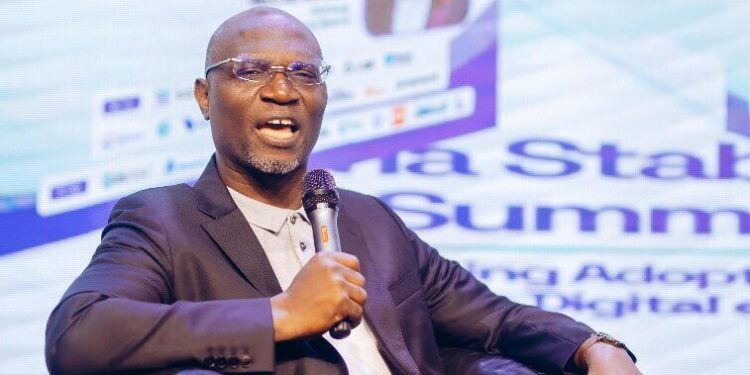Nigeria’s cryptocurrency transactions have surpassed $50 billion between July 2023 and June 2024, according to the Director-General of the Securities and Exchange Commission (SEC), Dr. Emomotimi Agama.
At the exchange rate of N1,500 to the dollar, the amount equals N75 trillion—almost two-thirds of Nigeria’s equities market capitalization, which stood at N98.8 trillion as of October 24.
Speaking at the annual conference of the Chartered Institute of Stockbrokers, Agama said the staggering volume of crypto activity highlights the growing sophistication and risk appetite of Nigerian investors. However, he expressed concern that this energy has not been effectively harnessed within the formal capital market.
Despite Nigeria’s strong crypto engagement, Agama noted that fewer than four per cent of the nation’s adult population actively invests in the local capital market, which he described as a “critical drag on economic growth and capital formation.”
While less than three million Nigerians are registered capital market participants, over 60 million citizens reportedly engage in daily gambling, wagering an estimated $5.5 million each day.
“This paradox is revealing,” Agama said. “An appetite for risk clearly exists, but not the trust or access to channel that energy into productive investment.”
He warned that the dominance of speculative habits over structured investment reflects a deeper erosion of confidence in Nigeria’s financial ecosystem.
Reflecting on the Capital Market Master Plan (CMMP) 2015–2025, Agama described it as an ambitious but only partially realized effort to transform Nigeria’s economy through capital market reforms. With less than half of the plan’s 108 initiatives fully implemented, he attributed the shortfall to weak alignment with national goals and limited stakeholder commitment.
Agama acknowledged successes in areas such as Green Bonds, Sukuk, fintech integration, and non-interest finance but said liquidity remains heavily concentrated in a few blue-chip stocks like Dangote Cement, MTN Nigeria, and Airtel Africa.
Comparing Nigeria’s market capitalization-to-GDP ratio of 30 per cent to South Africa’s 320 per cent, Malaysia’s 123 per cent, and India’s 92 per cent, Agama emphasized the need for deeper financial inclusion and mobilization of domestic capital to fund national development.
He outlined six key reform priorities low retail participation, market concentration, declining foreign inflows, underused pension assets, untapped diaspora capital, and infrastructure financing gaps.
According to him, the SEC must evolve “from being merely a regulator to an enabler of private-sector-led growth,” focused on building trust, transparency, and inclusivity.
“Vision without execution is inertia and reform without measurement is aspiration without accountability,” he declared. “If we can channel even a fraction of our speculative energy into productive investment, Nigeria’s capital market can become the lifeblood of its economic renaissance.”
Stay tuned to 9am News Nigeria for more Breaking News, Business News, Sports updates And Entertainment Gists.
















